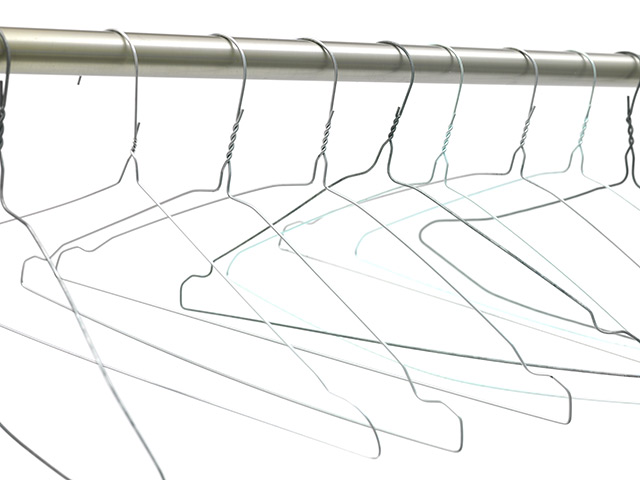Amazon delivery drivers forced to submit to AI-powered camera tracking of their activities INSIDE the vehicle to retain job
04/26/2021 / By Nolan Barton

Amazon is requiring its delivery drivers to sign new contracts permitting the use of artificial intelligence (AI)-powered camera technology meant to monitor them while they conduct their deliveries.
The new contract affects some 75,000 drivers in the U.S. who will lose their jobs if they do not consent to the intrusive new biometrics technology. The technology identifies and stores information about the driver, including face, location, movement and driving style. It will also record if the driver yawns or shows signs of drowsiness on-shift. Information collected is then shared with their dispatcher.
“I had one driver who refused to sign,” the owner of an Amazon delivery company in the Pacific Northwest told news site Motherboard. The business owner requested anonymity for fear of retaliation from Amazon. “It’s a heart-breaking conversation when someone tells you that you’re their favorite person they have ever worked for, but Amazon just micromanages them too much.”
Motherboard was able to obtain a copy of the “Vehicle Technology and Biometric Consent Agreement.” The form states that failure to comply with the request for consent will result in the termination of the driver’s employment with Amazon – or the related third-party delivery service partner that employs the driver.
Amazon disclosed in the form that vehicles will be “video-monitored by cameras that are both internal and external and that operate while the ignition is on and for up to 20 minutes after the ignition is turned off.”
The form also states that the technology may create biometric information, as well as collect, store and use biometric information from a driver’s photo. The technology tracks vehicle location and movement, including miles driven, speed, acceleration, braking, turns and following distance. The technology is being provided by Netradyne, a fleet management AI-technology start-up from San Diego.
In a February announcement, Amazon said the company’s four-lens “Driveri” camera would be installed in its delivery vehicles for “safety” reasons, as well as improving the “quality of the delivery experience.”
A presentation from Netradyne demonstrates the capabilities of the technology, including identifying a driver’s seatbelt compliance and distraction level, which ranges from using a mobile phone to simply looking down. Driving style is also closely monitored, with events like hard acceleration and stop sign violations being recorded and swiftly reported to dispatchers.
Amazon claims surveillance is meant to keep drivers and communities safe
Deborah Bass, a spokeswoman for Amazon, stated that the decision to implement round-the-clock surveillance on their drivers was made “to help keep drivers and the communities where we deliver safe.”
Bass related that Amazon tested the technology from April to October last year on over two million miles of delivery routes and “the results produced remarkable driver and community safety improvements — accidents decreased 48 percent, stop sign violations decreased 20 percent, driving without a seatbelt decreased 60 percent and distracted driving decreased 45 percent.”
“Don’t believe the self-interested critics who claim these cameras are intended for anything other than safety,” she said. (Related: Amazon rolling out police state surveillance cameras on delivery vehicles to spy on people who aren’t even customers.)
But some drivers working for the world’s largest e-commerce firm didn’t see it that way from the moment the company announced that it would roll out cameras powered by AI.
Henry Search, a 22-year-old delivery driver in Washington state, said drivers saw cameras capturing their workday as an “invasion of privacy.”
“We are out here working all day, trying our best already,” Search told the Thomson Reuters Foundation in a phone interview. “The cameras are just another way to control us.”
Another driver in Massachusetts, who asked not to use his name to protect his identity, noted that drivers already use an app called Mentor that tracks the location and movements of the vehicle. He said that he would welcome a camera outside his van to record evidence for any accident, but not a camera in front of him all the time.
“I don’t see how that keeps me safe. It’s too much,” he said.
One driver from Michigan, who also asked not to use his name, said at the time of the camera rollout announcement that he would “look for other work because he does not want to be subjected to surveillance.”
“The footage recorded could be shared with a future possible employer who can then decide to reject you before even knowing you,” he said.
Largest expansion of corporate surveillance in human history
Privacy advocates warned that equipping Amazon’s fleet of delivery vehicles with AI cameras could set a dangerous precedent for privacy.
“This appears to be the largest expansion of corporate surveillance in human history,” said Evan Greer, deputy director of tech nonprofit Fight for the Future. “If this becomes the norm, we are talking about the extinction of human privacy.”
Amazon has come under scrutiny in the past for accidents involving delivery drivers, but Greer didn’t think the AI-powered cameras would solve the problem.
“The first thing Amazon should do to improve safety is to not have such outrageous delivery quotas that force people into unsafe conditions,” Greer said.
Rights activists pointed out that Amazon already had an extensive surveillance system in its warehouses to track workers’ movements and boost productivity, including navigation software, item scanners, wristbands, thermal cameras and recorded footage.
“There are no laws in place to meaningfully limit what Amazon can do with the footage they collect,” said Greer.
Andrew Ferguson, a professor of law at Washington, D.C.’s American University, said Amazon’s private surveillance networks would boost the snooping powers of the government. (Related: Bezos the SPY master: Amazon now powering facial recognition surveillance technology for police.)
“While the inclination to use AI technology to enhance driver safety is commendable, the failure to think about the privacy and surveillance issues and equities is troubling,” he said.
Ferguson explained that while police may not have direct access to the footage, authorities will be able to access it in an investigation.
“Amazon is quite literally building mobile surveillance vans to film our neighborhoods, something that we would be rightly horrified about if our government did it,” Ferguson said. “I don’t think we want to join dystopia prime.”
Follow Surveillance.news for more news and information related to surveillance, spying and invasion of privacy.
Sources include:
Tagged Under: Amazon, artificial intelligence, Big Tech, biometric information, corporate surveillance, delivery quotas, delivery service partner, dystopia prime, Glitch, item scanners, Jeff Bezos, navigation software, obey, Orwellian, police state, privacy, stop sign violations, surveillance, surveillance vans, thermal cameras
RECENT NEWS & ARTICLES
COPYRIGHT © 2018 TECHGIANTS.NEWS
All content posted on this site is protected under Free Speech. TechGiants.news is not responsible for content written by contributing authors. The information on this site is provided for educational and entertainment purposes only. It is not intended as a substitute for professional advice of any kind. TechGiants.news assumes no responsibility for the use or misuse of this material. All trademarks, registered trademarks and service marks mentioned on this site are the property of their respective owners.





















